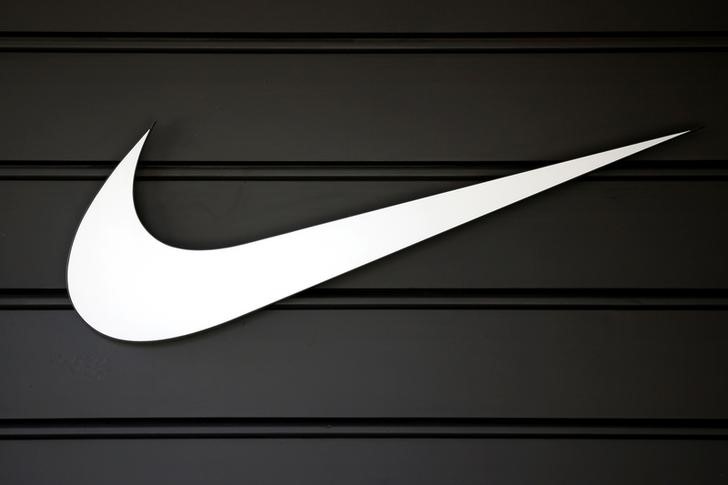On Wednesday, Piper Sandler maintained a Neutral rating on Nike (NYSE:NKE) shares with a consistent price target of $80.00. The firm highlighted ongoing challenges due to the rationalization of three major franchises, projecting these headwinds to persist throughout the remainder of fiscal year 2025.
Despite positive developments in the Running category, where specialty run sales and spring order books showed double-digit growth, there remains uncertainty regarding the duration of the rationalization process. The Air Force 1 rationalization appears to be more advanced compared to that of the Dunk franchise.
The analyst expressed concerns over the limited visibility into the timeline for completing the rationalization and questioned whether Nike's broader portfolio would experience only a "slight improvement" in the second half of fiscal year 2025. The overall spring order book being flat and slightly below expectations adds to the cautious outlook. Nike's decision to withdraw its annual guidance and delay its Investor Day was deemed prudent by the analyst, allowing time for the new CEO to fully assess the company's strategy.
Piper Sandler has adjusted its fiscal year 2025 earnings per share (EPS) estimate for Nike downward to $2.50, aligning with what the firm considers a bear case scenario. This revision comes amid concerns over Nike's valuation, with the stock trading at 35 times the newly estimated earnings, a price considered high by the firm, especially given Nike's projection of no growth for the second consecutive year.
The firm's reassessment of Nike's financial outlook and stock valuation reflects a cautious stance on the brand's near-term performance. The ongoing product line rationalization and the lack of clear growth prospects are significant factors influencing the Neutral rating and price target. Despite the encouraging signs in the Running segment, the overall uncertainty in Nike's strategic execution and market positioning remains a concern for investors.
In other recent news, Nike Inc (NYSE:NKE). has seen a series of significant developments. BofA Securities maintained a Buy rating on Nike, expecting robust sales and a group revenue of $13.2 billion in the third quarter of 2024, a 15% year-over-year increase, and earnings per share (EPS) of $1.97, a 14% rise from the previous year. However, the company later withdrew its full-year guidance due to an anticipated 8-10% revenue decline in the second quarter, citing challenges in its Classics footwear segment and macroeconomic conditions.
Several analyst firms have revised their financial outlooks for Nike. Truist Securities cut its price target to $83, maintaining a Hold rating, while UBS raised Nike's price target to $82, keeping a Neutral rating. Baird, expressing confidence in a multi-year earnings recovery, maintained an Outperform rating with a $110 price target. Telsey Advisory Group lowered its price target for Nike to $96 but maintained an Outperform rating, and RBC Capital cut Nike's price target to $82, citing a slower-than-expected product pivot.
These recent developments reflect cautious optimism among analysts about Nike's long-term financial prospects, despite near-term challenges and uncertainties. The incoming CEO, Elliott Hill, is expected to play a critical role in steering the company's strategy moving forward. Despite the challenges, Nike remains optimistic about long-term opportunities, particularly in China. These are the recent developments surrounding Nike Inc.
InvestingPro Insights
To complement Piper Sandler's analysis, recent data from InvestingPro offers additional context on Nike's financial position. Despite the challenges highlighted in the article, Nike maintains a strong market presence with a market capitalization of $133.64 billion. The company's P/E ratio of 23.74 suggests that investors are still willing to pay a premium for Nike's earnings, though this is lower than the 35x multiple mentioned in the article based on revised estimates.
InvestingPro Tips reveal that Nike has raised its dividend for 22 consecutive years and has maintained dividend payments for 41 years, demonstrating a commitment to shareholder returns even in challenging times. This could be particularly appealing to investors seeking stability in uncertain market conditions. Moreover, Nike's cash flows are reported to sufficiently cover interest payments, indicating financial resilience that may help the company navigate through its current rationalization process.
However, aligning with Piper Sandler's cautious stance, an InvestingPro Tip notes that Nike is trading at a high P/E ratio relative to near-term earnings growth. This supports the analyst's concern about valuation in light of projected flat growth. Investors seeking a more comprehensive analysis can access 11 additional tips on InvestingPro, providing a broader perspective on Nike's financial health and market position.
This article was generated with the support of AI and reviewed by an editor. For more information see our T&C.
